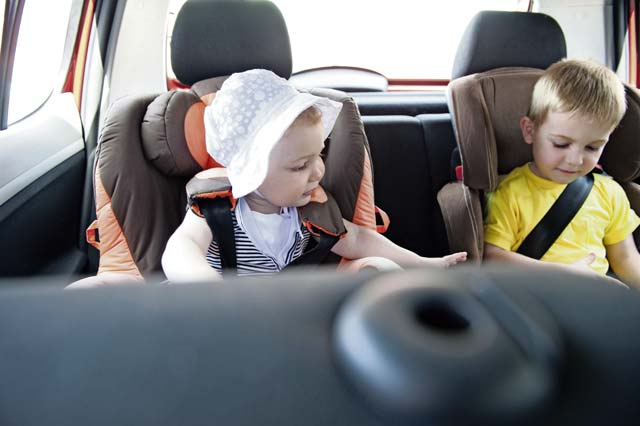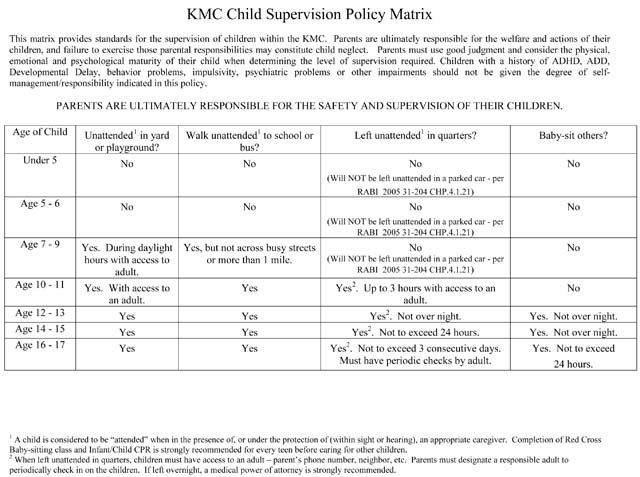
Leaving your child in a car alone, even for 10 minutes, can be dangerous. Regardless of the outside temperature or time of year, children should never be left alone inside a car.
Running into the gas station can turn into a shopping trip with little ones. It may seem less of a hassle to keep them in the car for 10 minutes, but talking to security forces, Family Advocacy and legal are a hassle in a situation that could have been avoided.
Though the summer has been mild, leaving young children in the car is not acceptable, regardless of the temperature outside.
“Many people think that leaving their children in the car when it’s hot is the problem, but the policy is effective year-round,” said Valerie Seitz, 86th Medical Operation Squadron Family Advocacy outreach manager. “Many people might think that even though it’s nice outside, it’s fine to leave their children in the car for a short period of time. But the fact of the matter is, it’s still a policy — even in the winter.”
The 86th MDOS offers many awareness and preventative courses, but the ignorance of knowing a child’s limits is what causes the most issues.
“There are preventative programs, but I think the most important and effective thing is just getting the word out there,” said Rachelle Veazey, 86th MDOS registered nurse of new parent support. “We have a few avenues where we reach out to parents, mostly expectant parents.”
Support programs are available for families through Family Advocacy, including home visits to help parents feel as comfortable as possible.
“Being overseas can be stressful for some parents. Some may have young children, and their spouse might be deployed,” said Emily McCormick, 86th MDOS Family Advocacy intervention specialist. “We offer support groups so that, though the spouse may be away from the support of their family, they can form a support system with other parents going through similar experiences.”
Parents may think their child is capable of being left in the car for 10 minutes, but they may not think about how dangerous it really is.
“If you’re unsure if your child is safe in the car or not, take them with you.” Veazey said. “It’s not worth the consequences.”
The matrix below provides standards for the supervision of children within the KMC. Parents are ultimately responsible for the welfare and actions of their children, and failure to exercise those parental responsibilities may constitute child neglect.
Parents must use good judgment and consider the physical, emotional and psychological maturity of their child when determining the level of supervision required. Children with a history of attention deficit hyperactivity disorder, attention deficit disorder, developmental delay, behavior problems, impulsivity, psychiatric problems or other impairments should not be given the degree of self-management and responsibility indicated in this policy.



